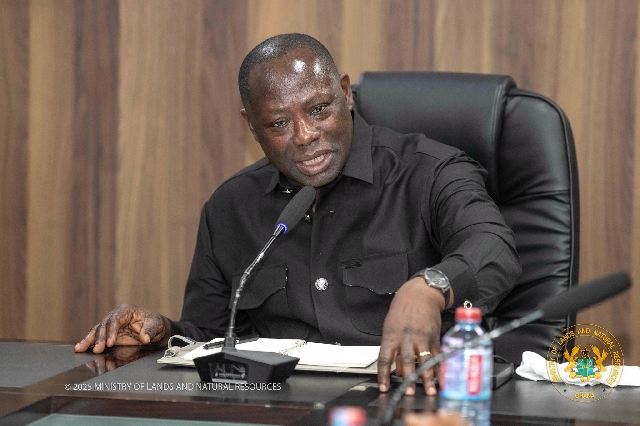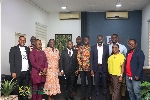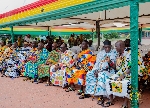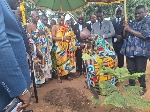Cabinet approves novel cooperative mining and skills programme to transform galamsey
 Emmanuel Armah Kofi Buah
Emmanuel Armah Kofi Buah
The Government of Ghana has taken a decisive step toward transforming the country’s artisanal and small-scale mining (ASM) sector with the approval of a new flagship programme—the Responsible Cooperative Mining and Skills Development Programme (rCOMSDEP).
The initiative, championed by President John Dramani Mahama and approved by Cabinet, will transition and consolidate the existing Community Mining Scheme (CMS) and the National Alternative Employment and Livelihood Programme (NAELP) into a unified, streamlined framework aimed at sustainable job creation and environmental protection.
According to a press release issued by the Ministry of Lands and Natural Resources and signed by Ama Mawusi Mawuenyefia, the Director of Communications at the Ministry of Lands and Natural Resources, rCOMSDEP will promote the formation of locally owned mining cooperatives.
These cooperatives will be equipped with legal concessions, professional training, and access to centralised processing facilities fitted with modern gold recovery and water treatment technologies.
Crucially, the programme is expected to phase out the use of harmful mercury in gold processing by introducing regulated, environmentally friendly recovery systems.
The programme is built on six core pillars:
Cooperative Mining Scheme – Establishment of community-based mining groups with centralised facilities.
Mine Support Services – Technical support including equipment leasing, geological surveys, safety training, and regulatory compliance.
Vocational Training & Entrepreneurship Development – Skills training in mining techniques, equipment maintenance, and alternative livelihoods, with special focus on youth and women.
Environmental Rehabilitation – Systematic land reclamation and reforestation efforts to restore degraded lands and biodiversity.
Agricultural Value Chain Development – Creation of sustainable farming cooperatives and agro-processing hubs in mining regions, in collaboration with the Ministry of Food and Agriculture.
Community Infrastructure Development – Use of mining revenue to develop water systems, health and educational facilities, and renewable energy projects.
At its core, rCOMSDEP aims to achieve three transformative objectives:
Promote and regulate environmentally responsible cooperative mining;
Restore lands degraded by illegal mining for productive use in agriculture, forestry, and other income-generating activities;
Equip youth and women with technical, vocational, and entrepreneurial skills for employment and self-employment.
The Ministry urged all stakeholders—traditional leaders, youth groups, civil society organisations, and private sector actors—to support the programme and contribute to reshaping the future of small-scale mining in Ghana.
Source: Classfmonline.com/Cecil Mensah
Trending News

Akwatia NDC supporters rally behind Ali Rasmus ahead of parliamentary primary today
03:22
NIA engages Ghana Association of Banks on use of identity system security
07:59
Ato Essien's bail sparks outcry over plight of sick prisoners in Ghana
15:36
'Cedi no apicki, but Abochi get the Dollar’ - Minority teases government’s claims on forex
13:24
W/R:Police intercept man with suspected indian hemp at Samreboi-Tanokrom checkpoint
03:08
Volta Regional House of Chiefs decry inland barriers on Volta roads
07:48
BOST rolls out bold solar push in major green energy shift
17:34
Asantehene hands over land for construction of Ghana School of Law campus in Kumasi
15:04
Sam George rebukes DSTV Ghana's response to immediate reductions
16:43
Defence Minister clarifies military recruitment process, says cadets were processed under previous gov't
03:54




